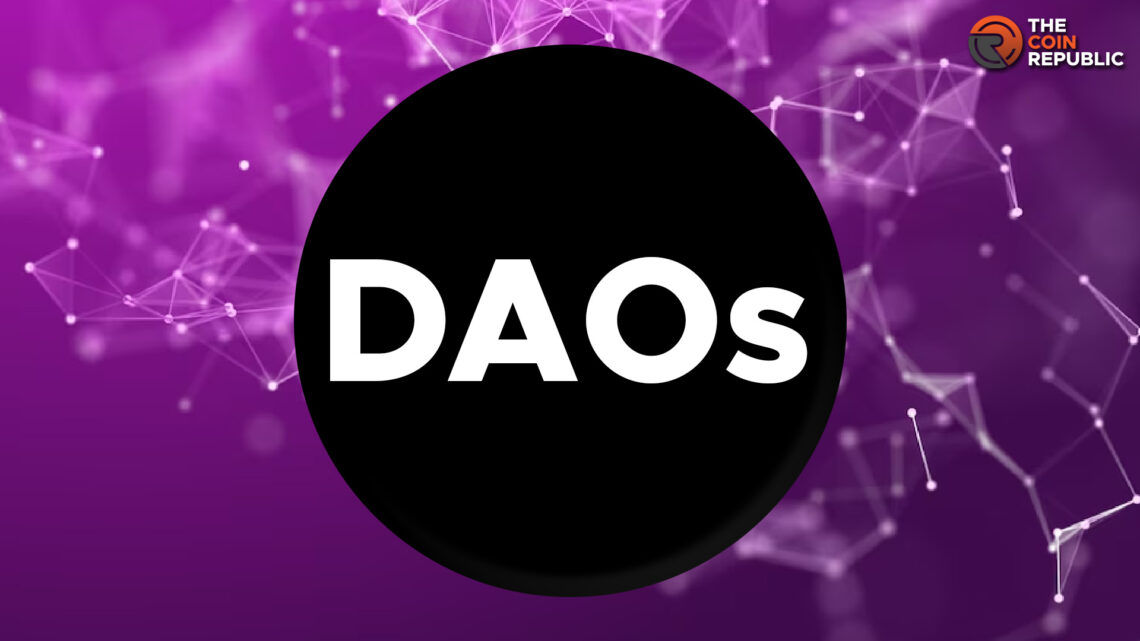- 1 DAOs combine traditional legal structures with decentralized, leaderless governance.
- 2 Jurisdictional complexities and data privacy laws pose significant challenges for DAOs.
- 3 Legal innovation, identity verification, and clear governance are keys to DAO compliance and success.
Decentralized Autonomous Organizations (DAOs) represent a new organizational structure and governance paradigm. Enabled by blockchain and smart contract technology, DAOs allow groups to coordinate and operate without traditional hierarchical management. While this promises more democratic, participatory decision-making, it also poses major uncharted legal territory.
As blockchain-based applications, DAOs exist across borders and legal jurisdictions. Their decentralized nature conflicts with most laws predicated on centralized entities and control. As pioneering organizations, DAOs have entered complex legal gray areas. However, thoughtful approaches can mitigate risks in the evolving regulatory landscape.
Navigating Legal Accountability in a Decentralized Structure
A core appeal of DAOs is their leaderless structure, where no single entity or person is in charge. Participating members govern the organization collectively through open voting and consensus algorithms encoded in smart contracts.
This frictionless peer-to-peer model aims to avoid centralized points of failure. However, the lack of traditional leadership can make legal liability clear. Most laws assume an identifiable liable party, like a CEO or board. But in a DAO, responsibility diffuses across all members.
If conflicts arise, regulators may have no obvious target for accountability. This legal gray zone requires innovative approaches, like implementing clear policies and incentives designed to encourage compliance across all members. Cryptographic identity protocols can also provide transparency around contributor actions.
Legal and Jurisdictional Challenges for DAOs
A related challenge is jurisdictional complexity. DAO membership spans national borders by design. Which countries’ laws apply becomes unclear since DAO activity is not contained geographically.
This means DAOs may confront conflicting international regulations around data privacy, financial reporting, taxes, and more. Compliance becomes complex. Understanding regulations across relevant jurisdictions is critical. Savvy legal guidance can help navigate clashes between regulatory frameworks.
Incorporating in a jurisdiction with cryptocurrency-friendly regulation provides one option to gain standing in the traditional legal system. But the international scope of most DAOs requires looking beyond any one country’s laws.
Smart contracts enable DAOs to codify governance and decentralize operations. However, how current legal systems view smart contract enforceability still needs to be tested. Technical bugs or unforeseen edge cases in smart contract programming open the door for disputes.
To mitigate risk, having clear policies about resolving issues written into smart contract code is important. Thorough auditing and formal verification of smart contracts by experts provide another safeguard. As legal precedent builds, best practices around blockchain contracting will become better defined.
Data Privacy Regulations
Many DAOs rely heavily on member data. As with any organization, handling personal data triggers privacy regulations like GDPR in the European Union. Being decentralized does not exempt DAOs from applicable data laws.
Baking sound data practices directly into platforms via privacy-enhancing computation techniques represents one way to take a privacy-centric approach from the start. DAOs should formulate policies for data use and storage that comply with relevant requirements. Consulting privacy lawyers is prudent when handling sensitive information.
Since DAOs are so new, there is minimal legal precedent so far on how existing laws apply to them. The law usually needs to catch up to new technologies. DAOs are charting novel ground at the vanguard of blockchain-based coordination.
This legal uncertainty requires a thoughtful approach. Prudent DAOs will tread carefully and seek expert guidance on structuring themselves in legally compliant ways. Actively participating in evolving policy dialogues around cryptocurrency can also help shape sensible regulation.
The first legal cases involving DAOs will establish important early guardrails and lessons. There will be missteps, but the long-term potential is immense. With careful navigation, DAOs can pioneer new modes of decentralized collaboration.
Promising Directions for Legally Compliant DAO Structuring
Silver bullet solutions still need to be created for navigating the legal landscape of DAOs. Still, promising approaches are emerging to design legally sound decentralized autonomous organizations.
Clearly defining membership rights, privileges, and governance processes in constitutional documentation helps reduce liability risk by setting transparent expectations and operations.
Incorporating identity verification procedures like Know Your Customer (KYC) checks helps DAOs comply with anti-money laundering and fraud regulations even in a decentralized context.
Well-designed incentives and reputation systems can encourage compliant behavior better than top-down control in decentralized networks. Drafting charters and policies that clearly explain rules and processes is key for indexed and structured data environments like DAOs.
Another option is forming hybrid corporate structures with traditional and decentralized components to better interface with existing legal frameworks.
Legal engineering can also help by leveraging experts to help design compliant DAO architectures anchored on sound smart contracts. The most resilient pathways forward will likely involve cross-functional collaboration between policymakers, lawyers, technologists, and innovators in mapping uncharted but promising territory at the intersection of law and code.
Decentralized Future: The Transformative Potential of DAOs
The nascent emergence of decentralized autonomous organizations represents a pivotal shift in how human coordination and collaboration can function. By leveraging cryptography, blockchain, and open-source software, DAOs enable new modes of participatory governance and value creation without centralized hierarchies. If thoughtfully implemented, DAOs could unlock disruptive and transformative possibilities across business, finance, civil society, and beyond.
Their decentralized structure grants DAOs unique resilience and scalability to grow far beyond traditional institutions. Despite current legal uncertainties, the long-term prospects for DAOs remain bright. With continued technological and social innovation, DAOs may become dominant organizations in the internet-native digital future. Their potential to reshape society by transforming incentives, trust, and collective behavior is immense.
Conclusion
Today’s legal systems face foundational challenges addressing decentralized organizations like DAOs. Through collaboration between policymakers, lawyers, technologists, and innovators, workable solutions can emerge.
Mapping uncharted territory by nature involves some missteps. But the transparent, participatory future promised by DAOs is profoundly worth striving toward. With patient perseverance, pioneering organizations can navigate these complex waters and chart promising new territory at the intersection of law and code.

With a background in journalism, Ritika Sharma has worked with many reputed media firms focusing on general news such as politics and crime. She joined The Coin Republic as a reporter for crypto, and found a great passion for cryptocurrency, Web3, NFTs and other digital assets. She spends a lot of time researching and delving deeper into these concepts around the clock, and is a strong advocate for women in STEM.


 Home
Home News
News






